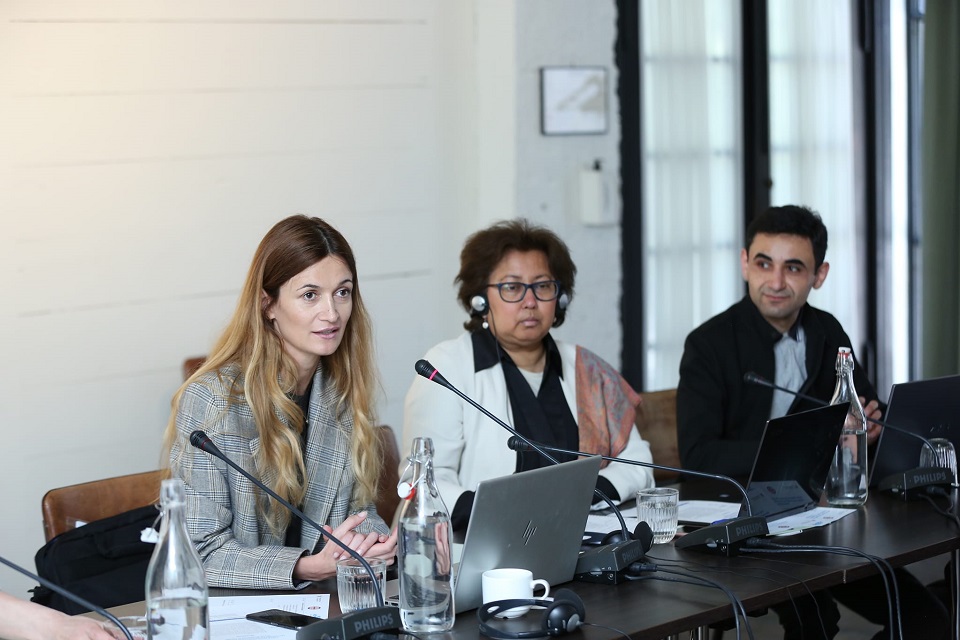The government expands efforts to institutionalize anti-sexual harassment mechanisms in the civil service
Date:

Between 2018–2021, with support from UN Women, eleven public entities adopted internal mechanisms on the prevention of and response to sexual harassment. Within the framework of this effort, UN Women is continuing to back the institutionalization of internal mechanisms for addressing sexual harassment in the civil service.
On 25 May 2022, UN Women in partnership with the Administration of the Government of Georgia hosted a meeting on the institutionalization of internal mechanisms on preventing and responding to sexual harassment in the civil service. This meeting was attended by representatives of those public agencies which, so far, have not introduced internal mechanisms on sexual harassment. The goal of this meeting was to generate political support and commitment towards developing internal complaint mechanisms on sexual harassment across the civil service. During the event, the participants discussed the prevalence, causes and consequences of sexual harassment, as well as the challenges and best practices towards working on issues of sexual harassment globally and in Georgia.
Tatia Naneishvili, a representative from the Ministry of Education and Science of Georgia, noted: “The development of an internal complaints mechanism on sexual harassment is currently underway at our ministry. At this meeting, our ministry reaffirmed the need for adopting this mechanism. During the meeting, we also received important information and knowledge to guide us through this process.”
To further support the operationalization of a sexual harassment complaints mechanisms in the civil service, on 23–24 May UN Women and the Administration of the Government of Georgia conducted a capacity development training course on victim-centred investigations of sexual harassment within the civil service. During the two-day training, participants strengthened capacities on the effective operationalization of internal mechanisms for sexual harassment; including the investigation of sexual harassment cases with a victim centric approach, as well as regarding international standards and best practices in the area. The training brought together up to 20 public servants from different government entities.
The initiative is supported within the framework of the “Good Governance for Gender Equality in Georgia” (GG4GEG) project, generously funded by the Ministry of Foreign Affairs of Norway.